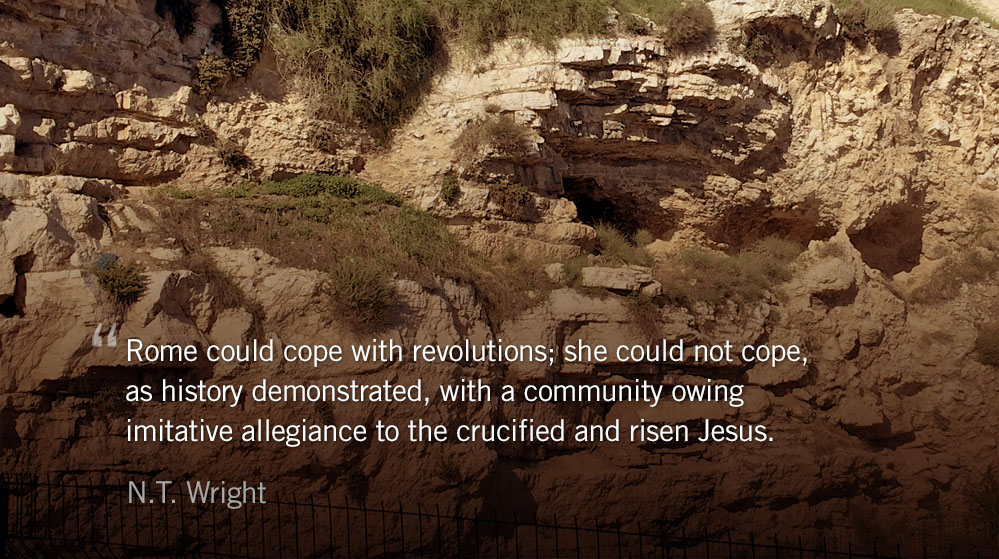1 Thessalonians 5.3
I am not proposing that we give up looking at Paul as a theologian and read him simply as a covert politician… If there is indeed a reference to Caesar and his cult in Romans, Philippians, and elsewhere, it would be a mistake to universalize this and suppose that Paul is covertly opposing Caesar in all sorts of other places as well.
The critique of the powers which Paul has in mind depends precisely on a thoroughgoing and well worked out theology, not least a very high Christology and a strong doctrine of justification. — N.T. Wright
In his paper on Paul and Caesar, N.T. Wright highlights Paul’s confrontation of the Thessalonians when he quotes Roman the propaganda, “peace and security” — Caesar’s promise to all who would worship him. Paul wasn’t critiquing one political view over another, but reorienting the way Christians looked to government in its entirety.
Paul had abandoned his Jewish privileges to find Christ, so the Philippians should be prepared, at least, not to take advantage of their belonging to a Roman colony, with the same end in view (finding Christ).
Paul’s underlying point is that the victory of the true God is not won by the normal means of revolution. Rome could cope with revolutions; she could not cope, as history demonstrated, with a community owing imitative allegiance to the crucified and risen Jesus.
Paul closes his letter the to Thessalonians by pointing them toward the one true source of peace and security; “Now may the God of peace himself sanctify you completely, and may your whole spirit and soul and body be kept blameless at the coming of our Lord Jesus Christ.”
Today’s Reading
1 Kings 22 (Listen – 7:51)
1 Thessalonians 5 (Listen – 2:37)






